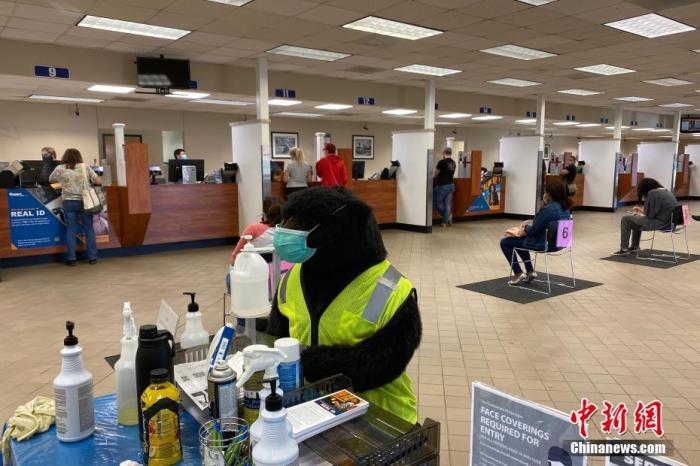China News Service, November 10th. According to the Washington Post, the governor of North Dakota stated on the 9th that he plans to allow asymptomatic medical workers diagnosed with the new crown virus to continue their work in order to address the state’s growing severity. Shortage of medical workers.
Data map: On November 9, local time, a black bear doll wearing a mask was placed in a vehicle management bureau in the Greater Washington area to remind the public to wear a mask.
Photo by China News Agency reporter Sha Hanting
According to reports, on the 9th local time, North Dakota Governor Doug Borgham emphasized that this policy will only apply to medical workers who are asymptomatic and will restrict them from working in facilities that receive new crown patients.
Borgham said that considering the above restrictions and the fact that the nurses and doctors in the COVID-19 ward were originally wearing protective equipment, "we think this is feasible."
On the same day, Borgham also said that some hospitals in the state have asked asymptomatic staff who are infected with the new crown virus to stay at work to treat patients with the new crown, which will also allow the hospital to vacate more beds.
According to data tracked by the Washington Post, in the past week, the number of hospitalizations related to the new crown virus in North Dakota has increased by more than 25%, and the number of deaths has increased by more than 36%.
Since the outbreak, the state has been looking for enough medical workers to work shifts, because many of them have contracted the virus or been required to be isolated because they may be exposed to the virus.
According to the guidance of the Centers for Disease Control and Prevention of the United States, “if other mitigation measures are taken, but the (medical) staff shortage (situation) continues”, hospitals in a crisis state can allow some staff to recover before recovering from the new crown Return to work; these employees should wear masks at all times, including in the rest room, and be careful not to eat or drink around other people; they should also avoid any contact with immunocompromised patients.

